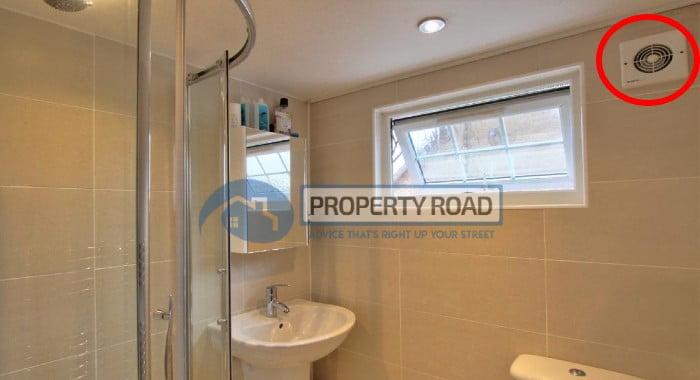Knowing how to gazunder successfully can be a very useful skill to have when househunting.
After all, not every buyer who reduces their offer is evil. Often there are legitimate reasons for gazundering someone.
We, ourselves have been forced into gazundering after uncovering extra work that needed doing on a property that wasn’t obvious when we viewed it.
So, let’s take a look at what gazundering is, how it differs from gazumping, and what the best gazundering tactics to use are.
What Is Gazundering?
Let’s start by defining what gazumping actually is.
According to the dictionary, the official definition of ‘gazundering’ is to:
Lower the amount of an offer that one has made to (the seller of a property), typically just before the exchange of contracts.
So, in short, gazundering is when a buyer reduces the amount they are willing to pay for a property after the original offer has already been accepted.
Buying A Property? FREE Step-By-Step Platform
Why Does Gazundering Happen?
There are many reasons why gazundering can happen, including:
- Cold Feet – Buying a house is a big decision and if your buyer suddenly doubts whether they can afford the house, they may reduce their offer.
- Bad Survey – If the buyer gets a bad survey back, they may reduce their offer to help them cover the costs of the work that needs doing.
- Pressure From The Chain – If your buyer is in a chain they may have been gazundered themselves and are now unable to pay the agreed sales price.
- Delays – When your property sale suffers delays you risk being gazundered if your buyers’ mortgage offer expires and they need to find a new one
- Competition – Buyers often continue looking for properties ‘just in case’ even after a sale is agreed. If they find one they prefer or is at a better price, they may reduce their offer.
This is by no means an exhaustive list but it does cover some of the main reasons you may be a victim of gazundering.
For us, we had to gazunder someone when the survey we conducted uncovered a number of issues. While some were minor and we would have been happy to absorb these costs, a few were a little more serious and would require some building work.
One issue was to do with the bathrooms that had been added during a renovation. While building regulations approval was in place, for them to consider it fully approved, they needed extractor fans adding to be able to sign it off and issue the completion certificate.

This caused issues with our mortgage company who added a condition to the mortgage that this work had to be completed within 6 months of us moving in.
We calculated that the extra costs to do this and the rest of the work would come to around £2,000, so we put forward to the seller that we wanted her to either do the work herself (and send us proof), or we had to reduce our offer by the same amount (gazundering).
She chose to allow us to reduce the offer as she didn’t want the disruption of doing it herself, and she also knew the issues would likely come up again with another buyer if we decided to walk away.
So, in the end, we were forced to gazunder as there was an additional, unexpected cost to us that we couldn’t avoid if we wanted a mortgage.
Difference Between Gazundering & Gazumping
Whereas gazundering is something the buyer is in control of, gazumping is controlled by the seller.
That’s because gazumping is when the seller accepts an offer from another buyer, after having accepted a previous offer.
Therefore, with gazumping, the seller can always choose whether or not to accept the new offer or honour the previously accepted one.
Gazundering, on the other hand, is completely out of the hands of the seller.
If the buyer lowers their offer before contracts are exchanged, the seller can only choose whether or not to accept the new offer.
Should You Even Think About Gazundering Someone?
While both gazundering and gazumping are usually frowned upon, it doesn’t mean there aren’t times when gazundering may be a fair move.
Therefore, gazundering should always be kept in mind as an option. However, we’d suggest it should only be used when really necessary.
When Is It OK Use Gazundering Tactics?
There are some legitimate reasons for why you may need to use gazundering tactics, these can include:
Gazundering After Survey
If you’ve had a homebuyers report or structural survey conducted and it’s thrown up some unexpected issues, you may be within your rights to lower your offer.
Of course, the issues should be major enough that it will cost you a significant amount to rectify. The issues also should not be ones that you had previously been warned about.
This is the situation we were in (as we explained above), where the survey and conveyancing process brought up several issues we couldn’t have known about when we placed our offer.
Financial Problems
Sometimes things just go wrong financially. It could be that the mortgage offer your had has expired and you’re struggling to find a suitable replacement.
It could be that you’ve been gazundered yourself and can no longer afford to proceed at the agreed price.
Whatever the reason, if a change in circumstances means you can no longer afford to pay the agreed price, gazundering may be your only option.
Keep in mind that this is one of the gazundering reasons least likely to succeed. After all, it’s likely the seller will have budget their onward purchase (if they have one) around the amount you originally offered.
If you have to reduce your offer simply because you can no longer afford it, there’s a reasonable chance the seller will decide to look for a more financially secure buyer instead of accept your lower offer.
Sudden Market Crashes
It’s rare for property prices to crash overnight. Usually, any price crashes play out over a period of several weeks or months.
However, it is possible that if your transaction has been dragging on for some time, the property may no longer be worth the amount you agreed to pay.
Whether this is acceptable grounds for you to gazunder someone is down to personal interpretation.
However, if the price has fallen so much that a mortgage lender may be reluctant to lend to you at the price agreed, you may have no choice but to lower your offer.
With a bit of luck, when you need to gazunder for this reason, the seller is also in a similar position – as is the rest of the chain. If that’s the case, there’s a chance the transaction can still proceed at the lower amount.
How To Gazunder Successfully
Knowing how to gazunder successfully essential comes down to knowing how to approach it depending on the circumstances.
Gazundering Based On Survey Results
If the issue is linked to maintenance/repair costs that have been highlight by a survey, a good approach would be to first discuss the survey with the sellers.
They may be happy to carry out the work needed to repair the issues highlighted by the surveyor.
The advantage of this is that you don’t have the hassle and upheaval of having to carry out the work yourself.
The downside is that you cannot be sure as to what standard the remedial work has been conducted.
Still, at least giving the sellers the option to see to the repairs themselves is a good idea. If they refuse, it gives you stronger ground for which you can make your attempt to gazunder.
A gazundering offer is more likely to be accepted if you’ve given the seller an opportunity to avoid it.
This is exactly how we were able to gazunder successfully (as we explained above). Our seller opted to let us do the work and accept a lower offer rather than have the hassle of doing it herself.
This suited us as as could use someone we trusted to do the work correctly. The seller just asked for copies of the quotes to do the work before she accepted our lower offer so she could be sure we were only lowering our offer enough to cover the work needed.
Gazundering Based On Financial Problems
If you need to gazunder due to financial issues such as being unable to get a mortgage for the agreed amount, the first step should be to tell the seller your position.
This doesn’t guarantee that they’ll accept your new offer, or even that they’ll not be upset about it. But, it does mean there’s more chance they’ll be understanding.
Of course, the exact cause of the issues will also be a factor.
If it’s simply because you overlooked something they may not be as understanding as if, say, you have been gazundered yourself.
Still, only by explaining your issues to the seller do you have a chance of being successful in gazundering.
Gazundering Based On Market Crashes
Wanting to gazunder simply because house prices in the area have fallen since you made your offer is a little more tricky.
Many sellers will feel that if you were prepared to pay the higher price a few weeks or months ago, that shouldn’t have changed no matter what the market does.
However, if the market has crashed to the point where your mortgage lender is unwilling to value the property at the agreed price, you have a better chance of being successful.
In such cases, you can use the same approach as described in the previous section.
Is Gazundering Legal?
Many people feel like gazundering should be illegal.
It seems unfair that, as a seller, you may have incurred costs in preparing for the move only to have the buyer lower their offer at the last minute.
However, while there are questions over how ethical gazundering is, it’s actually perfectly legal.
Until the contracts are signed towards the end of the conveyancing process, neither party has any legal commitment to proceed with the transaction.
So, keep this in mind when considering how to gazunder successfully.
For us, we would say that gazundering has to remain legal, at least for as long as unforseen issues can arise. Perhaps if every seller had to have their own comprehensive survey and some of the conveyancing process done (such as searches) before they can list, that would be different.
In such a case, the buyers would be able to see potential issues and costs to rectify before making an offer. This would certainly help reduce gazundering, though we’d still question whether it should ever be made an illegal practice!
How To Protect Against Gazundering As A Seller
As with most things, prevention is better than cure and there are some steps you can take as a seller to help reduce the chance of gazundering happening to you. Here’s some to consider:
Be Realistic On The Sales Price
One of the most common reasons for gazundering is that the initial agreed sales price was too high.
Buying a property can be quite emotional and it’s easy for buyers to get carried away in the heat of the moment and offer to pay too much for a home, especially if a bidding war commences.
Be realistic about the sale price you set and try to be sure that the buyer is serious. Encourage them to have multiple viewings of your home before you agree on a price so you can be sure they are not acting on a whim.
We had to do this on our most recent sale, reducing our asking price by 5% after a few months without any firm offers. We made the new price ‘offers over’ but still received an offer slightly below this amount.
We could have pushed for the buyer to increase their offer, but by then we simply wanted to sell and get moving so we didn’t want to increase the chances they would just gazunder us later.
By accepting the lower price, we could always fall back on the fact we had accepted a lower price than we wanted and therefore weren’t prepared to reduce it further.
Be Honest About Any Issues

If you know there is damp in the back bedroom or signs of movement in the kitchen, be up-front and honest about them.
Issues like this are sure to be picked up on a survey so hiding them only delays confronting the problem.
Telling your buyer about such problems before they make an offer significantly reduces the chances they will reduce their offer later.
We always make sure to fix as many problems as we can before we list a property on the market which helps to avoid this issue. However, if there are issues we cannot or do not want to fix, we are honest about them during the viewing.
Of course, it’s a careful balancing act between not drawing attention to negatives and being honest so you have to be careful.
In our case, there was a large crack in our retaining wall that was very visible (despite a previous repair). We knew it was just cosmetic as we had had a structural survey conducted when we bought the property, however, we were aware some people may try and use it to gazunder us later.
So, if anyone appeared to notice the crack, we would simply say “we had a structural survey done when we bought and that crack is just cosmetic, we are happy to share the report with you.”
This was actually a way for us to turn a potential negative into a positive (a structural survey is great reassurance for buyers) while also protecting us from gazundering.
Offer To Pay To Resolve Problems

If your buyers’ survey has picked up on some work that needs carrying out, offer to pay to get the work rectified before the sale completes.
This will often work out cheaper than accepting a lower offer from the buyer and will also help you build up trust with your buyer.
It’s worth doing the work as, even if the sale still falls through, it’s one less potential problem you’ll have to worry about the next time you find a buyer!
We had to do this on our last sale. The buyer’s survey had identified a damp issue that even we had not been aware of. It wasn’t a major issue but would cost around £500 to fix.
Our buyer discussed the repair with us and the impact on their offer but we were able to avoid being gazundered by offering him some garden equipment we were looking to sell anyway. He accepted this offer.
While missed out on the cash we would have got for selling the equipment, it meant our transaction could proceed without a hitch and we at least didn’t have the hassle of trying to sell the equipment!
Find A Chain-Free Buyer
Of course, you can’t always pick and choose your buyers but, if given the choice, a buyer not in a chain is always more preferable than one who is relying on selling their own property first.
That’s because your own sale can be affected by events happening further down the chain. For example, if your buyer is gazundered on their own property, they might respond by reducing their offer on your property.
When we sold our first property, we were lucky enough to sell a chain-free, cash buyer. This meant the were a pretty secure buyer and even decided against having a survey done!
Of course, finding such a buyer isn’t easy and we’re not saying you should specifically look for one like this. However, when you do get one, you might be willing to consider a lower offer from them just because you can be more confident that gazundering won’t happen (though don’t rule it out!).
Become Chain-Free Yourself
Just as gazundering can occur because of events further down the chain if you are in a chain yourself this could also impact your chances of getting through without being gazundered.
That’s because chains can and do cause delays in the process. Every time there is a delay that isn’t your buyers fault, it increases the chances of them reducing their offer or pulling out altogether.
You can always move items into storage and rent for a while to remove yourself from the chain.
Don’t Delay The Process

Anything you can do to speed up the process and get to the exchange of contracts faster will help you avoid being gazundered.
We’ve already mentioned about becoming chain-free but it’s also worth ensuring all your paperwork is in order and that you’re ready to proceed as quickly as possible.
Appointing a good solicitor will also help you avoid any unnecessary delays.
We have always made a point of finding the solicitor we want to use as soon as our house is on the market. That way, we can tell potential buyers we have a solicitor ready to go – helping to show we’re serious and won’t hold things up.
Build Up Rapport With The Buyers
If you can, exchange contact details with your buyers. Many high street agents discourage this yet by being able to contact each other directly you don’t have to wait for the estate agents office to open to pass messages through a middleman.
Most online estate agents allow you to deal with your buyer directly, thus cutting down communication time and helping you keep things on track.
This was one of the biggest advantages we found when we used an online estate agent to sell our home. Being able to communicate with our buyers directly saved a lot of time and helped us overcome problems before they became a major issue.
We actually dealt with our buyer through WhatsApp and it came in really useful when his solicitor started holding things up. We were able to communicate directly with him and encourage him to put pressure on his solicitor to speed things up.
How To Deal With Gazundering As A Seller
If you are selling a property and have become a victim of gazundering, do not panic.
If you’ve read all of this article then you’ll already perhaps understand why it may be happening to you.
Sometimes there are genuine reasons as to why a buyer needs to lower their offer. In such cases, you may be able to make allowances depending on your financial position and desire to sell.
Whether you accept a lower offer may also depend on how quickly you feel you could find a replacement buyer.
In short, you have several options open to you:
Refuse Point-Blank
If you feel the buyer is simply trying it on, or the lower offer makes it impossible for you to continue the transaction from a financial point of view, refusing point-blank may be your only option.
Sometimes this will mean the buyer backtracks and agrees to proceed at the originally agreed price.
Sometimes you’ll lose the buyer altogether, particularly if it’s because they have seen another property they like.
Refusing point-blank is a risky strategy but can occasionally be the correct option.
Re-Negotiate The Price
Perhaps more common is to attempt to re-negotiate the price.
This can often be effective when the gazundering is happening because of an unfavourable survey.
You can perhaps negotiate the buyer back up to an acceptable price by agreeing to carry out repairs to some of the issues highlighted.
Remember that re-negotiating doesn’t always have to mean the agreed price. As we mentioned earlier, we were able to re-negotiate with our buyer to include some garden equipment in the sale that we planned on selling anyway.
So, think about what you have that might appeal to the buyer if you’d prefer to give them something instead of a price discount.
Accept With Conditions
If you decide you want to accept the lower offer, you are in a relatively strong position for making extra demands.
This could be along the lines of accepting the offer on the condition contracts are exchanged by a certain date.
This puts the buyer under pressure to get everything in order and the transaction complete.
Just remember, if the demand appears unreasonable you may still lose the buyer.
This kind of counter to gazundering usually works best when the cause of the reduced offer is a crashing market and you want to complete before house prices fall further.
Accept Unconditionally
If you are just desperate to sell or concerned you won’t find another buyer, accepting unconditionally may be the best approach.
This takes away a lot of the risk attached to other options but may also leave you in the least profitable situation.
Accepting a lower offer without any conditions attached is usually best for when there are financial issues out of the buyers control.
Whatever approach you decide to take, try to first understand the buyers reason for lowering their offer.
Finding this out can often be half of the battle won as it gives you clues as to how best to deal with the situation.
You may also find our posts on how to negotiate a higher sales price, and how to negotiate a lower price on a property useful.







